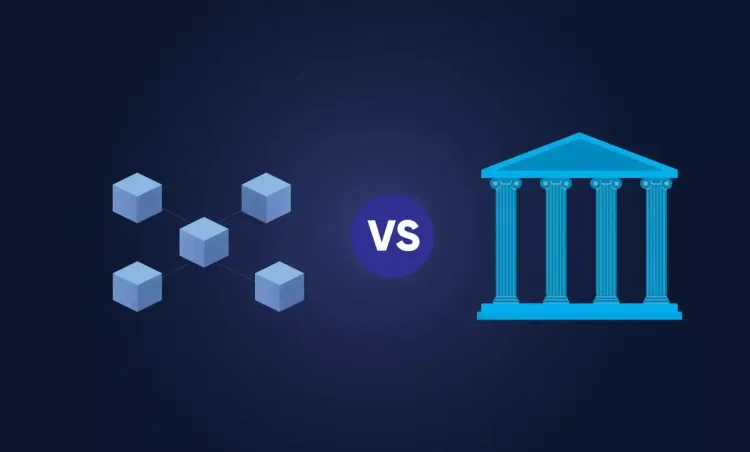In today’s rapidly changing digital economy, FinTech has transformed the way consumers and businesses conduct financial transactions. From complex banking applications to peer-to-peer payment systems, FinTech solutions offer unparalleled convenience. But with great convenience comes great risk—especially when it comes to payment security. Cyber threats, data breaches and fraud are increasing at an alarming rate. Strong payment security is therefore an absolutely necessary pillar in the FinTech sector. Imagine a world where every transaction is vulnerable to attacks. Trust in digital payments would disappear, and the FinTech ecosystem would not be able to grow. That is why payment security is fundamental to the development of the FinTech sector and not just a technological requirement. If consumers and businesses understand its important role, they can approach this issue with greater confidence.
The Foundation of FinTech Trust
Trust is the foundation of every financial system. FinTech is no exception. If users are willing to accept digital payment methods, they need to be confident that their money and personal information are safe. Payment security mechanisms designed to protect user information and ensure secure transactions, including fraud detection systems, multi-factor authentication, and encryption, help these initiatives build consumer trust and foster greater acceptance of fintech products. Without these protections, the credibility of the fintech industry will be damaged, and consumers will return to traditional payment methods.
Growing Cyber Threats in the Digital Payment Ecosystem
As fintech grows, cyberattacks targeting technology companies are also becoming increasingly sophisticated. Hackers are constantly changing their techniques to exploit vulnerabilities in systems and illegally obtain private data. Payment security can provide important protection against these risks by discovering and fixing vulnerabilities before they can be exploited. Modern technologies, including artificial intelligence (AI) and machine learning, are increasingly being used to predict and prevent potential security breaches. The rapid development of cyber risks underlines the need to continuously improve payment security policies.
The Role of Compliance in Payment Security
If fintech companies want to ensure payment security, they must adhere to strict legal guidelines. These regulations set standards for how financial data should be processed and protected: GDPR (General Data Protection Regulation) and PCI DSS (Payment Card Industry Data Security Standard). Compliance demonstrates that a company is committed to protecting user data and goes beyond the legal requirements. Non-compliance can not only lead to high fines but can also damage the reputation of fintech companies and undermine the trust that customers have in them. Compliance with these regulations is absolutely necessary for payment security and to protect the interests of users.
Stop Fraud with Modern Security Tools
One of the biggest challenges for the fintech industry is fraudulent transactions. The payment security system includes tools such as anomaly detection, biometric verification and transaction monitoring to immediately detect suspicious behaviour. For example, if a user suddenly starts trading from a foreign location that deviates from their normal behaviour, the system can flag or stop the user’s trading. This proactive approach to fraud prevention ensures that consumers and businesses are protected from financial loss, thereby improving the reputation of digital payment systems.
The Value of Data Encryption in Protecting Transactions
Encryption is a fundamental part of payment security. It converts private data into an unreadable code that only authorised users can access. This technology ensures that hackers cannot decipher the data, even if they intercept it. Fintech systems often utilise end-to-end encryption, which safeguards the entire transaction path from beginning to end. Encryption reduces the risk of data breaches by protecting user data at every level and increases user confidence in digital payment systems.
Improving Consumer Trust Through Open Security Policies
One of the most effective ways to gain consumer trust is transparency. When fintech companies openly communicate about their security measures, users gain more confidence in their products and are more likely to use them. For example, by giving consumers comprehensive insight into encryption technology, data handling policies, and compliance certificates, they feel that their financial data is being protected reliably. This transparency not only builds trust, it also creates a competitive advantage in a crowded market.
Financial Impact of Security Breaches
For fintech startups, inadequate payment security can have disastrous consequences. A security breach can cause significant financial losses for both companies and consumers. Companies can also face costly lawsuits, regulatory fines, and years of reputational damage. These potential consequences serve as a reminder that investing in strong payment security systems is a long-term and cost-effective approach. Fintech companies that prioritise security can stay in the market and avoid such situations.
Original Technology Improves Payment Security
The fintech industry is constantly looking for innovative ideas to improve payment security. For example, blockchain provides a tamper-proof distributed system that improves the security and transparency of transactions. In contrast, biometric authentication technologies such as facial recognition and fingerprints provide additional security, making it virtually impossible for illegitimate users to gain access to accounts. As these technologies continue to evolve, they have largely created a more secure digital payment ecosystem.
Conclusion
Payment security is the lifeblood of FinTech; it is more than just a technological necessity. Strong security measures ensure that trust in digital financial transactions is maintained, protecting users and the FinTech ecosystem from harm. By investing in strong security measures, adhering to regulations, and implementing the latest technology, FinTech companies can create a secure environment that inspires trust and fosters growth. When consumers understand the value of payment security, they can make more informed choices about the platforms they use. In an increasingly digital world, payment security is no longer optional; it is essential for FinTech to survive and thrive.




